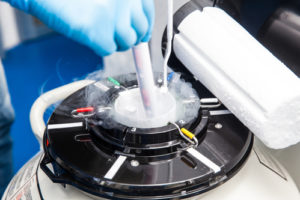Getting Started with Surrogacy
March 2, 2018Washington State’s New Law Involving Surrogacy Has Passed
March 23, 2018Two Fertility Clinics Recently Malfunction Resulting in Thousands of Damaged Eggs & Embryos
Individuals and families that rely on reproductive medicine to start or grow their families need to be able to depend on the systems and safeguards used by fertility clinics. Unfortunately for some 1,100 fertility patients working with the Pacific Fertility Center in San Francisco, CA and University Hospitals Ahuja Medical Center in Cleveland, OH, those safeguards recently failed due to low liquid nitrogen levels.

Both fertility clinics suffered cryogenic tank failures over the weekend of March 2, 2018, when temperatures rose in liquid nitrogen storage facilities. Tragically, in the case of the Cleveland, OH clinic, some of the affected eggs and embryos dated back as far as the 1980s. In San Francisco, a substantial number of affected eggs and embryos had been stored for 8-10 years.
Because frozen eggs and embryos need to be maintained at temperatures below -220 Fahrenheit (-140 Centigrade), some labs have redundant alarm systems and conduct manual temperature checks and failure drills. In most cases, fertility labs storing frozen embryos and eggs do not have personnel on site 24 hours/day, so alarm and notification systems can be critical in identifying and addressing systems malfunctions. However, there is not an established operating standard for fertility clinics and labs to follow, so those systems and safeguards can vary widely from one clinic or lab to the next.
Both the San Francisco and Cleveland labs are investigating the causes of their tank malfunctions. When that has been determined, it may spur additional safety measures and safeguards throughout the industry. Sadly, this won’t help the individuals and families affected by these systems failures. While the Cleveland lab incident may have affected some 700 fertility patients and the San Francisco tank failure may have an impact on up to 400 patients, it’s not clear yet whether those frozen embryos and eggs may still be viable. It’s possible that many will be OK. Of course, until the full extent of the damage is known, it will be a stressful time for those patients. In Cleveland, one of the affected families has already initiated class-action litigation.


